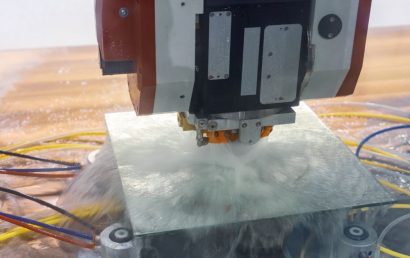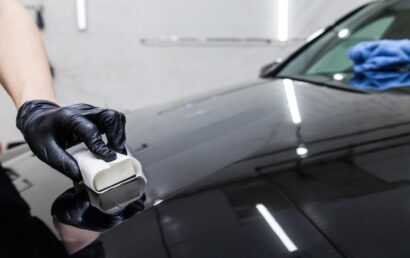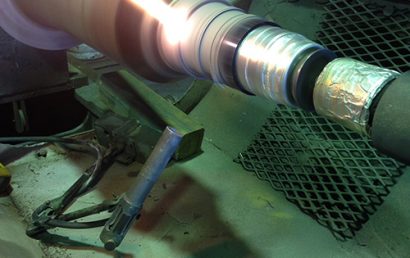What Can Pure Metal Based Alloy Coating Materials Do For You?
Pure metal based alloy coating materials are used in many thermal spray coating processes such as metalizing and spray & fuse hardfacing. From producing advanced coatings that provide protection against high temperature wear and oxidation to simple coatings that facilitate buildup repair, these alloys are the premier options you can trust to deliver the right protection for the surface of your products.
Popular Pure Metal Based Alloy Coating Materials
Nickel Based (Ni-Based) Alloys
Ni-based alloys are excellent high temperature materials and have proven to be very useful across many industries.
Examples:
- NI-101 (Atomized)
The NI-101 powder is useful up to 1000°F. Not only is it easily machined, it can produce coatings that are moderately hard and dense. The NI-101 possesses good oxidation and corrosion resistant properties, can repair SS and Ni parts and be used for ceramic bond coatings.
- NI-105 (Atomized)
The NI-105 powder has an excellent track record of producing smooth and bright coatings as well as exhibits good bonding characteristics. It can resist corrosive gases up to 1800°F and can be used to facilitate general repairs.
Molybdenum Based (Mo-Based) Alloys
Mo-based alloys have unique properties that make them viable in many applications including the manufacturing process of heat exchanger units and rocket engine components.
Examples:
- MO-103 (Agglomerated)
The MO-103 materials exhibit good wear properties and can self-bond to a wide variety of metallic surfaces. It is very hard and has natural lubricity which adds to its impeccability.
- MO-130-2 / 1193F (Agglomerated)
Just like MO-103, the MO-130-2 powder possesses almost the same attributes as the former. In addition, it is useful up to 600°F or 316°C.
Iron Based (Fe-Based) Alloys
While Fe-based alloys are less expensive than cobalt or nickel-based grades, it is still an excellent alloy that is used in many applications.
Examples:
- FE-271-4 (Atomized)
The FE-271-4 powder exhibits excellent and produce a very smooth coating. Great for protecting parts from erosion and fretting, and can be used for dimensional repair.
- FE-108-3 (Atomized)
If you are looking iron-based alloys that are useful below 1200°F, the FE-108-3 is the one you are seeking. What’s more, it has excellent corrosion properties.
Cobalt-Based (Co-Based) Alloys
New Co-based superalloys have been discovered to be better than those of the more traditional Ni-based ones.
Examples:
- CO-106-1 (Atomized)
The CO-106-1 can produce hard and dense coatings as well as withstand high-temperatures with its excellent wear properties.
- CO-285 (Atomized)
The CO-285 exhibits excellent oxidation resistance and produces smooth sprayed coatings. In addition, it can also replace WC in high-temperature applications.
Aluminum-Based (Al-Based) Alloys
Al-based alloys are important in many aerospace manufacturing processes since the introduction of metal-skinned aircraft.
Examples:
- AL-102 (Atomized)
The AL-102 is denser and harder than pure aluminum, and can be used to repair Mg and Al based parts. It can also provide a bright, shiny and smooth finish.
- AL-104 (Atomized)
Similar to AL-102, the AL-104 can be used to produce a very dense coating and have excellent electrical conductivity properties.
Copper-Based (Cu-Based) Alloys
Cu-based alloys possess superior oxidation, hot corrosion and wear resistance as compared to their Ni-based counterparts.
Examples:
- CU-104 (Atomized)
The easily-machined CU-104 is resistant to galling and fretting at low temperatures, which makes it a very good bearing material.
- CU-116 (Atomized)
The CU-116 can protect critical parts from fretting and galling as well, and produce dense coatings containing low oxide levels.



